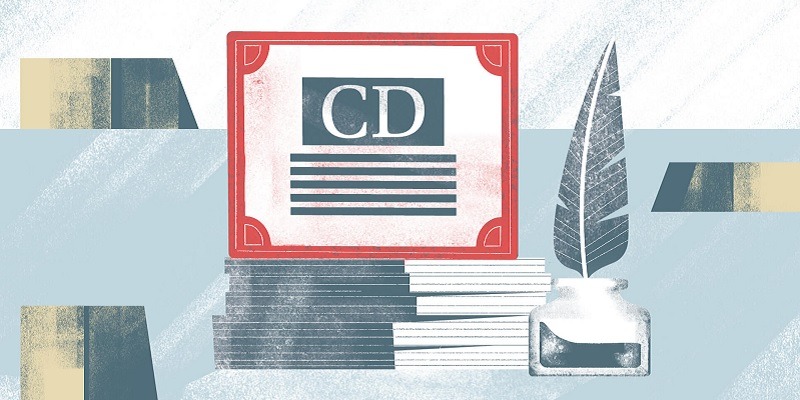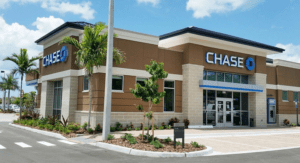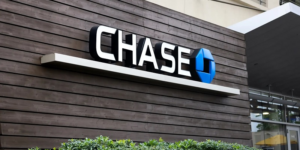
Just like any other thing you would shop for, certificates of deposit, or CDs, are not all the same. There are CDs that offer great interest, which can earn you hundreds of dollars or more on the money you put into it and there are others that will only earn you a dollar.
The key thing to pay attention to when you are making your decision is the interest rate, The best CD too look for is a High-Yield CD.
Editor’s Note: Looking for a more specific term CD? See these posts below:
- Best 6-Month CD Rates
- Best 9-Month CD Rates
- Best 12-Month CD Rates
- Best 18-Month CD Rates
- Best 24-Month CD Rates
- Best 36-Month CD Rates
- Best 48-Month CD Rates
- Best 60-Month CD Rates
| Service Credit Union | 4.25% APY 9-Month CD | Review |
| Western Alliance Bank | 4.50% APY 3-Month CD | Review |
| Western Alliance Bank | 4.40% APY 6-Month CD | Review |
| First Tech Federal Credit Union | 4.35% APY 13-Month Share Certificate | Review |
| Sallie Mae | 4.35% APY 10-Month CD | Review |
| Western Alliance Bank | 4.25% APY 12-Month CD | Review |
| Ponce Bank | 4.25% APY 3-Month High Yield CD | Review |
| Sallie Mae | 4.25% APY 14-Month CD | Review |
| Ponce Bank | 4.15% APY 4-Month No-Penalty CD | Review |
| Live Oak Bank | 4.10% APY 12-Month CD | Review |
| Live Oak Bank | 4.10% APY 12-Month Business CD | Review |
| First Mid Bank & Trust | 4.08% APY 9-Month CD | Review |
| Discover Bank | Up to 4.00% APY CD | Review |
| Sun Canyon Bank | 3.87% APY 11-Month CD | Review |
| Western Alliance Bank | 3.85% APY 5-Month CD | Review |
| Quontic Bank | Up to 3.75% APY CD | Review |
| GreenState Credit Union | 3.65% APY 10-Month CD | Review |
| Blue Federal Credit Union | 3.55% APY 15-Month CD | Review |
| Blue Federal Credit Union | 3.50% APY 9-Month No Penalty CD | Review |
| CIT Bank | 3.50% APY 13-Month CD | Review |
| CIT Bank | 3.50% APY 11-Month No-Penalty CD | Review |
| Southwestern National Bank | 3.40% APY 8-Month CD | Review |
| Ponce Bank | 3.00% APY 1-Month High Yield CD | Review |
| CIT Bank | 3.00% APY 6-Month CD | Review |
| CIT Bank | 3.00% APY 18-Month CD | Review |
What Is a High-Yield CD?
Plain and simple, a high-yield CD is a certificate of deposit that offers one of the highest interest rates available on the market.
However, it is important to keep in mind what may be the highest rate today may not be the highest rate in a few months. That is because rates depend on when the Federal Reserve changes them.
Once you do decide to open a high-yield CD, you can lock in that rate for a term ranging from three months to five years. These CDs, just like regular ones, are federally insured up to $250,000 per account holder.
Common Features Of a High-Yield CD
Primarily available at online banks. To find a high-yield CD, you should try looking at online banks and credit unions. Since they don’t have physical branches, they can afford to offer higher rates.
Have high interest rates. There is no real ceiling or number that determines if a CD rate is high but if it is above the 1% annual percentage yield, it is most likely a high-yield CD. A CD rate usually is written as annual percentage yield, or APY, which is the interest rate that factors in compounding.
Require low opening deposits. With these high-yield CDs come a minimum deposit of either $5,000 or below. Some may not even have a minimum. Jumbo CDs, in contrast, normally will require at least a $100,000 deposit without offering any better rates than a high-yield CD.
Rates: Regular vs. High-Yield CDs
Online bank CDs can have interest rates that more than double the national average. As mentioned above, it is because they don’t have to spend money operating physical branches or ATMs.
Also, the longer the CD term is, the higher the rate tends to be, but this isn’t always true. A bank may decide to only offer high interest rates on short-term CDs rather than long term ones.
Here is a look at the national average CD rates compared with a few online banks’ rates.
| CD term | National Average | 3 online banks APY Rate |
| 1-year CD | 0.29% | 1.85%, 1.50%, 1.50% |
| 3-year CD | 0.46% | 1.85%, 1.55%, 1.60% |
| 5-year CD | 0.59% | 1.90%, 1.65%, 1.70% |
*Banks: Marcus by Goldman Sachs, Citizens Access and TIAA Bank
High-Yield CD vs. High-Yield Savings
Additionally, CDs aren’t the only banking product that offer high yields. In fact, you can also find high-yield savings accounts, which tend to offer lower rates than high-yield CDs.
Similarly, regular savings accounts generally have lower yields than regular CD rates. Here’s how these accounts differ:
CDs don’t allow withdrawals until the term expires. If you withdraw early, there’s usually a penalty.
A savings account lets you withdraw six times a month, though it can be more depending on how you withdraw. Online transfers factor into this limit, while ATM withdrawals, if available at your bank, don’t count. Having this access to your money means a lower rate.
 |
 |
Bottom Line
If you want to meet certain financial goals such as buying a home or car, then definitely take a look at a high-yield CD. It offers flexible savings from just three months to a couple of years depending on what works best for you.
For more posts like this, check out our list of bank guides!
If you’re looking to put money away and earn interest on it, CDs are the way to go because you can find them at most banks. However, you don’t have to get a CD where you have your savings or checking account.
In fact, it’s probably better that you get it from another bank to compare CD rates.
We recommend checking out the CD accounts from Discover Bank and CIT Bank.



